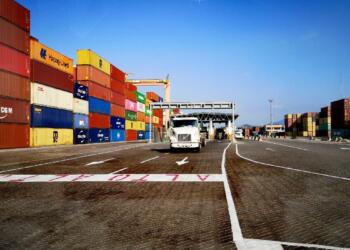
The uncertainty generated by the imposition of tariffs by the United States on its trading partners has forced global companies to reconsider their investments in countries that could be affected, which is why mergers and acquisitions transactions, known as M&A, are presented as a tool for firms seeking to face the current geopolitical environment.
According to an analysis by partners at the law firm Baker McKenzie , in the case of Mexico, the trend is expanding and has begun to be observed in companies that are seeking mergers and acquisitions transactions to reduce their exposure to the Mexican market, but without abandoning it completely.
In this regard, and despite the challenges of trade, natural resources and security, several companies are choosing to stay in Mexico, among other reasons, due to the geographic proximity to our northern neighbor, which is an advantage for sectors that depend on on-time delivery systems, and reduced shipping costs.
Another factor is that Mexico benefits from several trade agreements that go beyond the treaty it has with the United States and Canada, known as T-MEC, including pacts with the European Union and Japan, and access to public procurement by the United States government under the Trade Agreements Act .
In addition, Mexico has a skilled and experienced workforce in various manufacturing sectors, especially automotive and electronics. The availability of qualified personnel and competitive labor costs also continue to attract companies despite the existing problems.
According to the analysis, M&A in regions less affected by tariffs allows, among other factors, a diversification of the supply chain by reducing dependence on a single market. In addition, cost efficiency , as well as market expansion .
In this sense, it is important to observe the impact that this trend will have on the development of the relocation of companies in Mexico ( nearshoring ), specifically with the threat of tariffs on automotive products, as well as agricultural products.
According to the firm’s specialists, in cases where multinational companies are staying in the countries where they operate, they are abandoning expansion plans or diversifying production elsewhere to reduce dependence on jurisdictions exposed to the United States, in order to create a more resilient supply chain .
“The cost and complexity of relocating established operations can bring exorbitant costs, making it more viable to manage and mitigate existing risks rather than uproot and move,” the company said in a statement.
The firm noted that several industries, such as technology, automotive and consumer goods, are leading the relocation of their manufacturing from China.
“Companies that have long relied on Chinese manufacturing are now exploring alternatives in Southeast Asia and India,” he said.
The study pointed out that small and medium-sized companies are also taking advantage of mergers and acquisitions to reposition themselves in a more favorable business environment.
Comment and follow us on X: @GrupoT21














